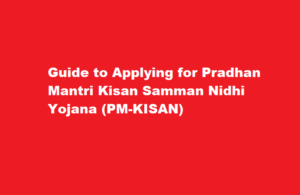Becoming A Pilot In India A Journey To The Skies
4 min read
Introduction
Becoming a pilot is a dream shared by many aviation enthusiasts in India. With a booming aviation industry and a growing demand for skilled pilots, pursuing a career in aviation offers exciting opportunities. In this article, we will explore the path to becoming a pilot in India, highlighting the necessary steps, qualifications, and training required to embark on this thrilling profession.
Educational Requirements
To begin your journey towards becoming a pilot in India, it is essential to have a solid educational foundation. Aspiring pilots must have completed their 10+2 education (or equivalent) with a strong emphasis on mathematics, physics, and chemistry. These subjects form the basis for understanding the principles of flight, aircraft systems, and navigation.
Selecting the Right Aviation Institute
Choosing a reputable aviation institute is crucial for aspiring pilots. India boasts several well-established flight training schools and academies that offer pilot training programs. These institutions should be recognized and approved by the Directorate General of Civil Aviation (DGCA), which governs aviation regulations in the country. Researching and selecting the right institute is essential to ensure quality training and industry-recognized certifications.
Obtaining a Student Pilot License
Before embarking on practical flight training, aspiring pilots need to obtain a Student Pilot License (SPL). To acquire an SPL, candidates must be at least 16 years old and undergo a medical examination to meet the medical fitness standards set by the DGCA. Additionally, applicants must pass a written examination on aviation subjects, including air regulations, navigation, meteorology, and aircraft systems.
Private Pilot License (PPL) Training
The next step in the journey is to obtain a Private Pilot License (PPL). PPL training focuses on developing essential flying skills and theoretical knowledge. This training includes flight maneuvers, navigation exercises, emergency procedures, and aircraft handling techniques. Aspiring pilots need to accumulate a minimum of 40-50 hours of flight time, including solo flying, to be eligible for the PPL examination conducted by the DGCA.
Commercial Pilot License (CPL) Training
After acquiring the PPL, aspiring pilots can progress to the Commercial Pilot License (CPL) training. CPL training delves deeper into advanced flying techniques, aviation regulations, and flight operations. The curriculum includes instrument flying, multi-engine flying, night flying, and cross-country navigation. Aspirants must complete a minimum of 200 hours of flight time, including specific requirements for night flying and cross-country flights. Successful completion of CPL training involves passing both written and practical examinations conducted by the DGCA.
Type Rating and Airline Transport Pilot License (ATPL)
To fly commercial aircraft, pilots must undergo type rating training, which focuses on a specific aircraft type. Type rating programs are conducted by airlines or approved training organizations and provide pilots with the necessary skills and knowledge to operate specific aircraft models. After obtaining type rating certification, pilots can apply for an Airline Transport Pilot License (ATPL). ATPL is the highest level of pilot certification, enabling pilots to act as captains or first officers in commercial airlines.
FREQUENTLY ASKED QUESTIONS
What should I study to become a pilot in India?
Candidates interested in becoming pilots should have a Bachelor’s degree in Aeronautical Engineering, Aircraft Operations, or a similar field. Students from any other science stream can apply for this course; but, in order to work in this field, they must first complete an aviation degree.
Which exam is important for pilots?
Indira Gandhi Rashtriya Uran Akademi (IGRUA) Entrance Test, Air Force Common Admission Test (AFCAT) and Aircraft Maintenance Engineering Common Entrance Exam (AME CET) are the well-known aviation exams in India.
Conclusion
Becoming a pilot in India requires dedication, perseverance, and a passion for aviation. Following the outlined steps, aspiring pilots can embark on a rewarding career in the skies. It is crucial to choose a reputable aviation institute, obtain the necessary licenses and certifications, and continually update skills and knowledge. India’s growing aviation sector offers a plethora of opportunities for pilots, whether in commercial airlines, charter services, or government aviation. With hard work and commitment, aspiring pilots can turn their childhood dream of flying into a thrilling reality.
Read Also : Securing Your iPhone Apps A Guide to Locking Apps on iOS






